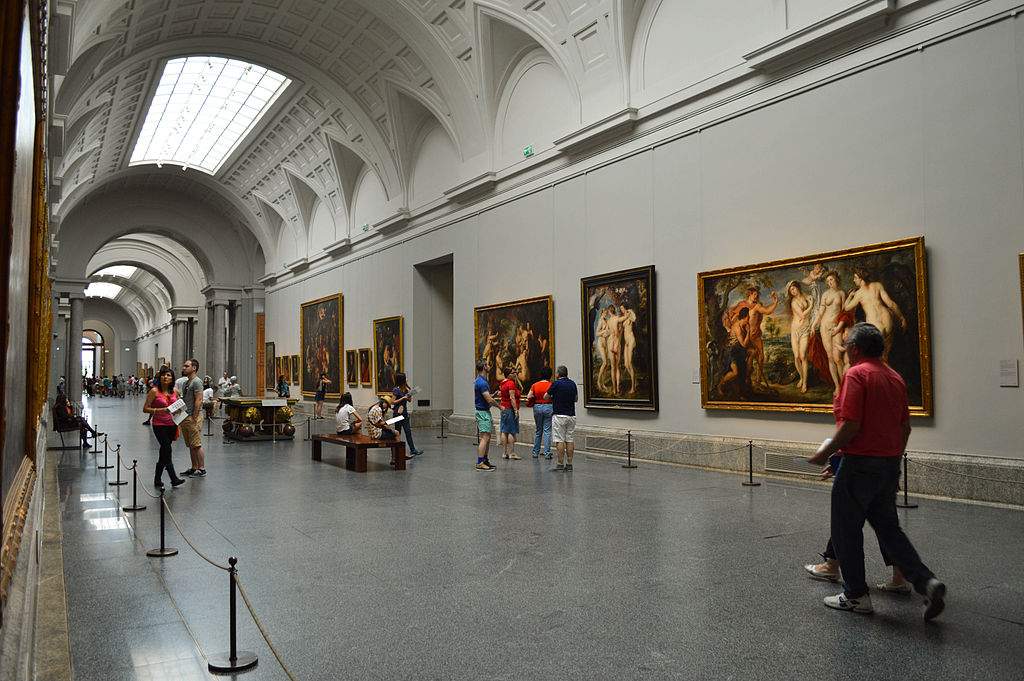The Prado Museum in Madrid celebrates its 200th birthday this year, but its director, Miguel Falomir, assures that it will not go the way of the Louvre, that is, it will not be stormed by tourists eager only to say “I’ve been there” or to take a selfie with iconic works. In an interview with El País newspaper, Falomir analyzes the current situation of exhibitions: “today’s exhibitions,” he tells the Spanish head, “are worse than those that were done in the 1980s and 1990s. Temporary exhibitions are coming to their end because it is difficult to add new knowledge on certain topics and because museums are increasingly reluctant to lend their works.” That of the museum that focuses on exhibitions is, for Falomir, a “free-falling model: now it is the permanent collection that should be important.”
From this assumption, a policy that wants to prioritize quality over quantity. Beginning with access arrangements: for the bicentennial exhibitions, group visits have been eliminated and even the institute’s reception capacity has been reduced (from 85 visitors every 15 minutes to 70). These are measures that, in the intentions of the Prado’s management, are also meant to ensure a better experience for the public and avoid traffic jams, such as those that were created with the exhibition dedicated to Bosch, in 2016, the most visited in the museum’s history (with almost 600,000 admissions, a number that is too high for the Prado, which records more than 3 million visitors each year, a figure that makes it one of the 15 most visited museums in the world).
It would therefore be all too easy to focus on box office exhibitions, but Falomir assures that this is not the goal of the Prado, which for its bicentennial has organized an exhibition dedicated to the restoration of Beato Angelico’sAnnunciation and one instead that intends to take stock of the connections between the Spanish and Dutch schools of the seventeenth century by focusing on the works of, among others, Velázquez, Rembrandt and Vermeer. “These are both research exhibitions,” Falomir points out, “that move away from those designed simply to increase visitors.” And which consequently focus everything on quality.
It is worth mentioning, moreover, that those related to visitor quotas for the 200th anniversary exhibitions are not the only measures that might turn the noses of many, but are actually being followed to make the public’s experience more enjoyable: for example, for a long time at the Prado, in contrast to what happens in the rest of the world, there has been a ban on taking photographs. And Falomir has never made a secret of the fact that, in his view, in famous museums the activity of taking photographs is more a means of saying “I’ve been there” than a way of preserving the memory of a work.
The Prado, with its new measures and way of conceiving exhibitions, in fact proposes a model that is antithetical to that of many other institutions (led by the Louvre, which for the 500th anniversary of Leonardo da Vinci ’s death will organize an exhibition on the Tuscan genius, about whose necessity one can raise doubts), on which it is more than ever appropriate to advance a reflection that evaluates its pros and cons.
Pictured: interior of the Prado Museum. Ph. Credit Francisco Anzola
 |
| Prado director: 'ours are research exhibitions, not box office'. Group visits suppressed and museum capacity reduced |
Warning: the translation into English of the original Italian article was created using automatic tools. We undertake to review all articles, but we do not guarantee the total absence of inaccuracies in the translation due to the program. You can find the original by clicking on the ITA button. If you find any mistake,please contact us.